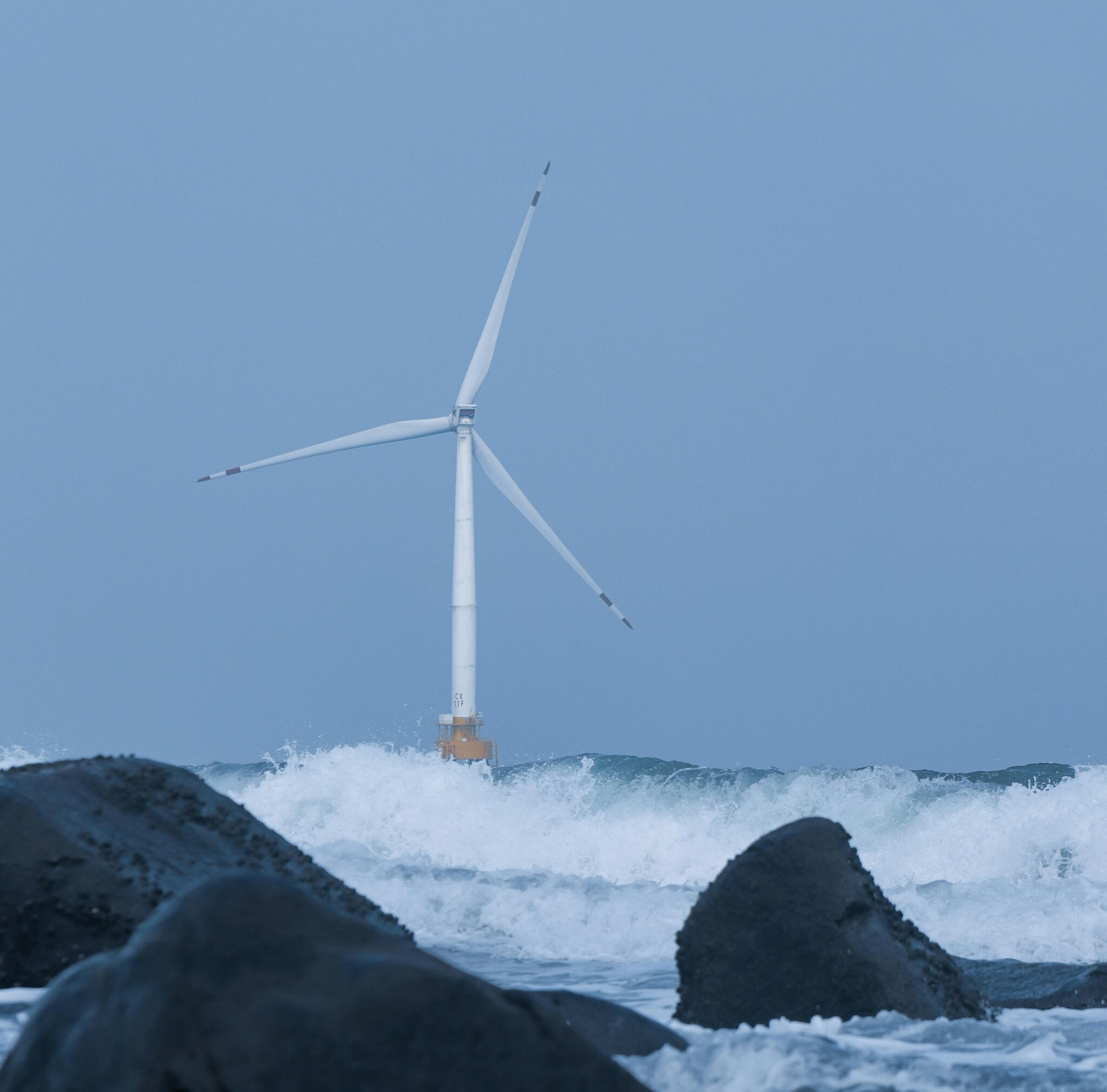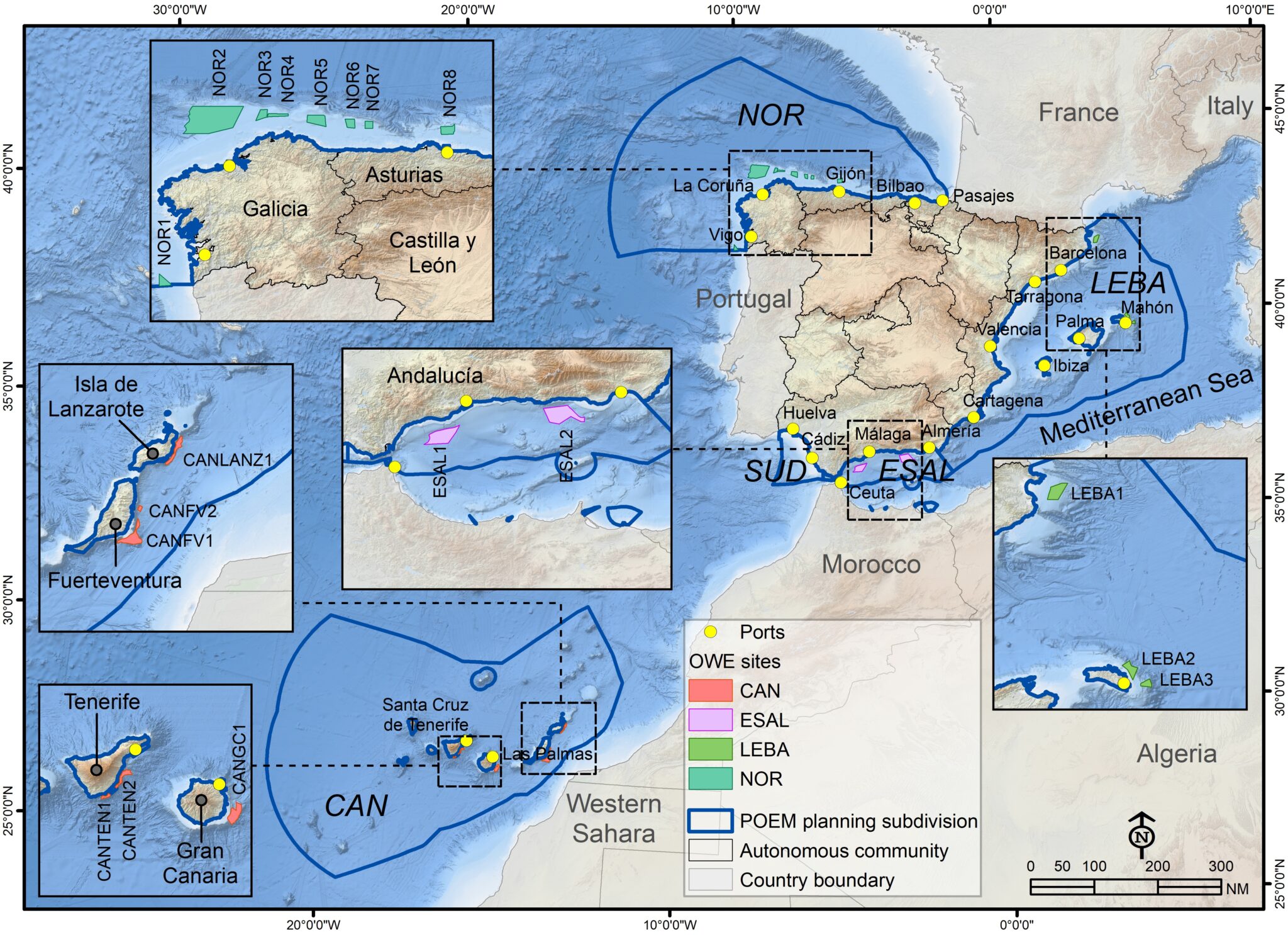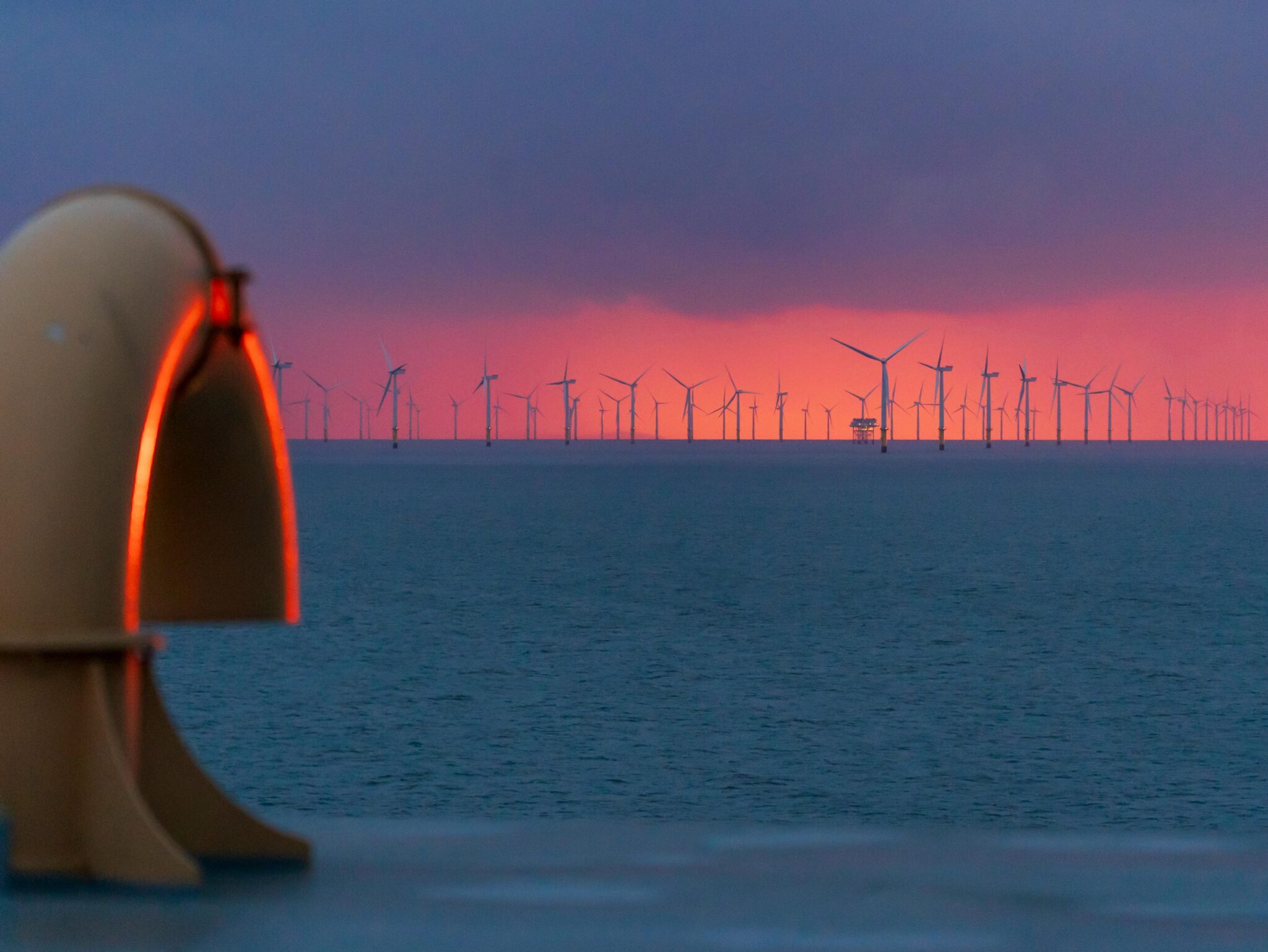IHCantabria researcher develops innovative planning model for offshore wind energy that prioritizes sustainability and social equity

A model that allows planning offshore wind energy balancing socioeconomic and environmental interests, optimizing the allocation of areas and promoting a fair transition to sustainable energies
A research project, led by a Ramón y Cajal postdoctoral researcher at the Environmental Hydraulics Institute of the Universidad de Cantabria (IHCantabria) and former researcher at the University of Girona, provides an effective methodology for ocean use planning, focusing on offshore wind energy development in Spain. Its use could facilitate more informed decisions adapted to local and regional needs, as it allows balancing the socioeconomic and environmental interests of citizens, optimizing the allocation of areas for development and promoting a fairer transition to sustainable energies.
The results of this research were recently published in a scientific article entitled “More robust offshore wind energy planning through model ensembling”, in the journal Nature Ocean Sustainability. The lead author of this article is Daniel Depellegrin, who is linked to the Coastal Ecosystems Group at IHCantabria as a Ramón y Cajal researcher (ayuda RYC2023-042640-I funded by MICIU/AEI/10.13039/501100011033 and by FSE+). His research was funded by a Marie Curie Blue-Paths Grant – Addressing Sustainability Transition Pathways in the Blue Economy – and was carried out at the Department of Geography of the University of Girona (UdG). This work was also co-funded with the Ramón y Cajal grant assigned to Daniel Depellegrin, as a researcher attached to IHCantabria and UdG.
This research is the result of an intense scientific collaboration of research staff from several Spanish institutions (Daniel Depellegrin, UdG/IHCantabria; Carolina Martí Llambrich, UdG; Javier Sanabria, University of Cadiz) and the following international experts: Maurizio Ambrosino (Sannio University of Benevento, Italy) and Sanjoy Roy (Institute of Architecture, Landscape and Settlement, Dhaka, Bangladesh).
The results of their research have generated one of the most comprehensive indicator databases in Europe, including 39 different indicators to assess and prioritize 19 High Potential Areas for Offshore Wind Energy (HPA-OWE), which are designated in Spain’s Maritime Spatial Management Plan (POEM).
This paper presents a hybrid multi-criteria assessment approach that promotes balanced decisions within maritime spatial planning frameworks. Among the fundamental principles for the prioritization of these areas are coexistence, because it seeks to promote coexistence between different uses of the sea; the socio-ecological approach, which prioritizes HPA-OWE in areas where ecological and social costs are minimized; spatial efficiency, aimed at developing in areas that minimize interactions and conflicts with other uses of the sea; energy equity, which considers a fair distribution of benefits and burdens to coastal communities; and technical-technological feasibility, which maximizes the capabilities of the chosen areas.
“This research also highlights the importance of integrating socio-economic data into decision-making models to better understand the cumulative effects of offshore wind energy infrastructure and balance the protection of socio-ecological resources,” explains Daniel Depellegrin. Therefore, the results of his research can be of great use for the development of future offshore spatial plans in Spain and Europe.
The research provides an innovative, multidimensional framework that allows planners to analyze areas of offshore wind energy deployment. It contributes to a sustainable balance between economic development, environmental protection and social equity, addressing critical challenges such as climate change, competition for marine space and socioeconomic inequalities. Among the innovations it proposes is the use of artificial intelligence techniques to improve communication between science and policy, as well as an adaptive approach to changing environmental, economic and social conditions, aligning with initiatives such as the European Green Pact and the EU Nature Restoration Act.
A line of research that is promoted by IHCantabria
With the Ramón y Cajal grant, Daniel Depellegrin proposes to develop operational models for input into future marine spatial plans, which are useful in the application of sustainable transition paradigms for ocean planning and in the Blue Economy sectors. The main areas of his research will include the development of comprehensive frameworks that incorporate socio-ecological dimensions into marine spatial planning. This involves assessing ecosystem services, socio-economic benefits of marine resources, stakeholder perceptions and human-nature interactions to create balanced and sustainable marine policies. Another area of development is decision support tools, such as cumulative effects assessment models, socio-ecological vulnerability analysis or artificial intelligence-based techniques to address sustainability challenges of maritime space use.
IHCantabria trusts in the contribution of the research line being promoted by researcher Daniel Depellegrin, around offshore wind energy planning, to continue promoting the sustainable development of the blue economy in Spain and to inspire the initiation of future research and projects in other regions of the world.
The full content of the article can be accessed through the following link: https://www.nature.com/articles/s44183-024-00080-8

Area of the study referred to in the article recently published in the scientific journal Nature Ocean Sustainability.

Offshore wind farms, such as the one shown in this image, could benefit from the application of the methodology proposed in this study.

Help RYC2023-042640-I funded by:
MICIU/AEI/10.13039/501100011033 and by FSE+
Blue-Paths -Addressing Sustainability Transition Pathways in the Blue Economy (Grant Agreement: 101062188)-, is funded under Horizon Europe’s HORIZON – Marie Skłodowska-Curie Actions 2021 program.



